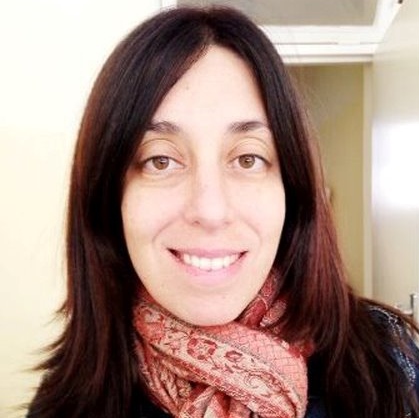
News

Jewish Youth Day is about the revolutionary spirit
ADINA ROTH
It was a leftwing Zionist youth group, the Żydowska Organizacja Bojowa (ŻOB), that sparked the Warsaw Ghetto uprising.
Zionist youth movements were central to the establishment of the State of Israel. We could go further back in Jewish history and suggest that Rabbi Yochanan Ben Zakkai’s establishment of a learning centre in Yavne when Jerusalem was under siege by the Romans was a moment of revolutionary importance. It paved the way for a new kind of Judaism after the Temple era. But when I think of revolutionaries, my mind goes all the way to Abraham.
The story goes that when Abraham came to believe in the idea of an invisible deity, he was still living with his family in his hometown where everyone worshipped idols.
As the story in the Midrash Bereishit Rabbah goes, Abram’s (as he was then known) father was in the idol worship business, and left town one day, leaving young Abram in charge of the business. Because Abram had come to believe in the existence of a power beyond clay and mud, beyond the physical, he smashed his father’s idols.
When his father came home, he was dismayed to find his stock in a mess. When he asked Abram what had happened, Abram told him that the idols had got into a fight and smashed each other. His father responded by saying that was impossible. Without skipping a beat, Abram responded, “Well then dad, why do you worship them?”
Some sources suggest Abram was 13 when this happened. I have often wondered why Abraham smashed his father’s idols at 13? What might it convey to us about the significance of the age of 13, and the potential of youth?
One of the most ubiquitous ways in which Jewish people connect to tradition is by ensuring their sons have a barmitzvah at 13. There is a parallel Jewish coming of age at 12 for girls. The very word “barmitzvah”, “son of the commandment” implies that the child is moving into an adult era of obedience to command, where the child is under command to observe mitzvot.
It conjures images of obedience, the child entering adulthood with a summons to obey tradition, to become a “good Jewish boy or girl”.
However, if we think back to Abram, he did not behave like a good, obedient boy at 13. Perhaps to become a son or daughter of the mitzvah, the commandment means that we need to think differently about the imperative of this time.
I often challenge my students by asking them to look around the world and consider what idols adults and society attribute power to today. The children do not hesitate to answer. Phones, technology, money, looks, and popularity are some of the words that pop out of their mouths.
It makes me think that Jewish adolescence needs to be visualised a-la Abraham as a time where we empower our youth with the tools of depth and tradition. However, we are also empowering them with the challenge of becoming the world’s revolutionaries.
Do we encourage our children to ask questions, to challenge authority, and to resist collective mindsets? How do we do this in a way that doesn’t become destructive, but that builds on what is valuable while removing the fear of taking down what is stale, corrupt, or destructive?
The ritual of barmitzvah and batmitzvah, if done correctly and deeply, gives each Jewish person an opportunity to have a profound Jewish Youth Day. Barmis and battis become a ritual to empower our youth to look at the society around us, and challenge the norms which no longer serve us.
But there’s another secret to Jewish Youth Day: It doesn’t need to be reserved for teens alone. Anyone who carries the revolutionary spirit of Abraham can feel inspired to re-imagine community, country, and the world. They are all welcome to take steps to bring about real change.
Youth Day isn’t just about the young, it’s about the revolutionary spirit in all human beings, the courage and chutzpah to smash a culture’s idols.
Adina Roth is the National Chairperson of Limmud SA. Limmud will be held in Johannesburg from 3 to 5 August; in Durban on 9 August; and in Cape Town from 9 to 12 August




